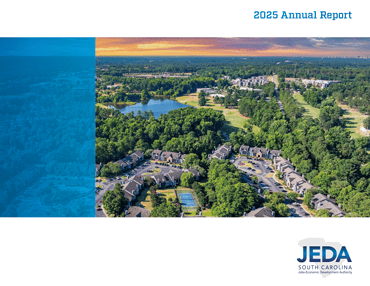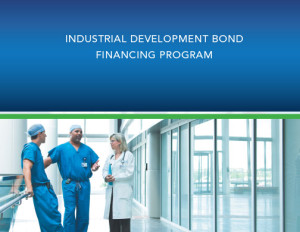Over the next several years, SC JEDA will administer $101 million in federal funding to South Carolina small businesses and entrepreneurs as part of the US Department of the Treasury’s State Small Business Credit Initiative (SSBCI) program, empowering South Carolina’s business community to grow, create jobs, and transform communities.
Program Components
Venture Capital: Providing Equitable Access to Capital
 Led by InvestSC, Inc., a South Carolina non-profit, the capital access program will provide a total of $51 million to South Carolina’s entrepreneurs ecosystem over the next 10 years.
Led by InvestSC, Inc., a South Carolina non-profit, the capital access program will provide a total of $51 million to South Carolina’s entrepreneurs ecosystem over the next 10 years.
Fund Managers
- InvestSC Inc, a South Carolina non-profit. Will Cruz, Chief Investment Officer, is a portfolio manager with vast experience in the venture capital space.
SSBCI Loan Participation Program for Small Businesses
Helping Small Businesses Grow, Expand and Create Jobs in SC
The SSBCI Loan Participation Program enables small businesses in South Carolina to obtain short to long-term financing to help businesses grow and expand, ultimately creating and retaining jobs in South Carolina. By partnering with financial institutions, this program provides small business loans at attractive terms while reducing the risk for the lender.
Technical Assistance Partnership with SBDC
JEDA has partnered with South Carolina Small Business Development Centers (SBDC) to provide basic legal and accounting assistance to small businesses applying for venture capital or loans through the State Small Business Credit Initiative (SSBCI) program.
For assistance, contact them at SCSBDC.com/ssbci.
Frequently Asked Questions
The US Department of Treasury has reauthorized and expanded a second installment of the State Small Business Credit Initiative (SSBCI 2.0) as part of the American Rescue Plan Act. The Act allocated $10 billion to support and empower small businesses to access the capital needed to invest in job-creating opportunities. SSBCI funds provide for American entrepreneurship, support small business ownership, and democratize access to capital including in underserved communities. SSBCI funds are expressly intended to address SEDI owned businesses (socially and economically disadvantaged individuals) and very small businesses (VSB).
55.66% of South Carolina SSBCI capital will be invested into SEDI-owned and controlled businesses.
To qualify as a SEDI owned business, 51% of the business is owned and controlled by SEDI qualified individuals as defined as follows:
- Individuals whose residence and/or business address is located in a CDFI investment area or businesses that will operate a future location in a CDFI investment area.
- Individuals who have had their access to credit on reasonable terms diminished as compared to others in comparable economic circumstances due to their:
- Membership of a group that has been subjected to racial or ethnic prejudice or cultural bias within American Society;
- Gender;
- Veteran status;
- Limited English proficiency;
- Disability;
- Long-term residence in an environment isolated from the mainstream of American society;
- Membership of a federally or state-recognized Indian Tribe
- Long-term residence in a rural community
- Residence in a US territory
- Residence in a community undergoing economic transitions (including communities impacted by the shift toward a net-zero economy or deindustrialization)
- membership of an underserved community (see Executive Order 13985, under which “underserved communities” are populations sharing a particular characteristic, as well as geographic communities, that have been systematically denied a full opportunity to participate in aspects of economic, social, and civic life, as exemplified by the list in the definition of “equity,” and “equity” is consistent and systematic fair, just, and impartial treatment of all individuals, including individuals who belong to underserved communities that have been denied such treatment, such as Black, Latino, and Indigenous and Native American persons, Asian Americans and Pacific Islanders and other persons of color; members of religious minorities; lesbian, gay, bisexual, transgender, and 9 queer (LGBTQ+) persons; persons with disabilities; persons who live in rural areas; and persons otherwise adversely affected by persistent poverty or inequality).



